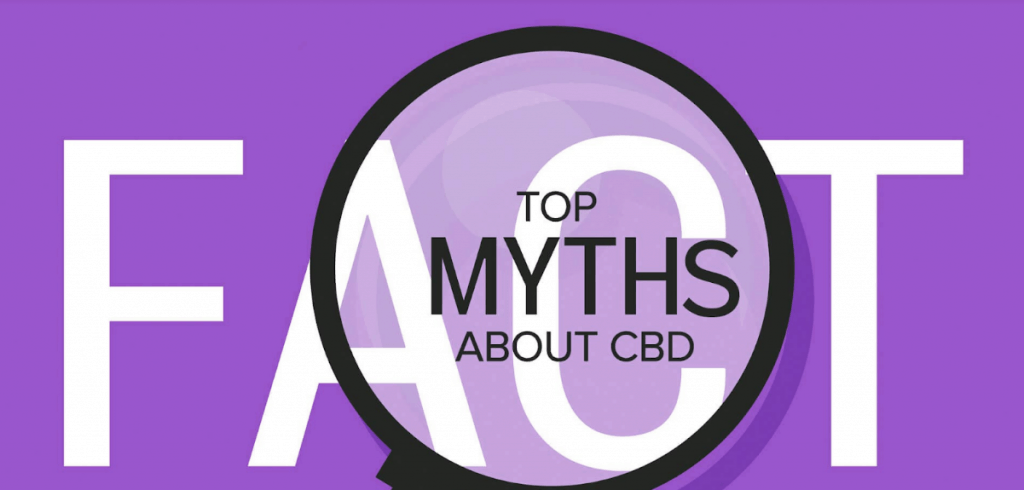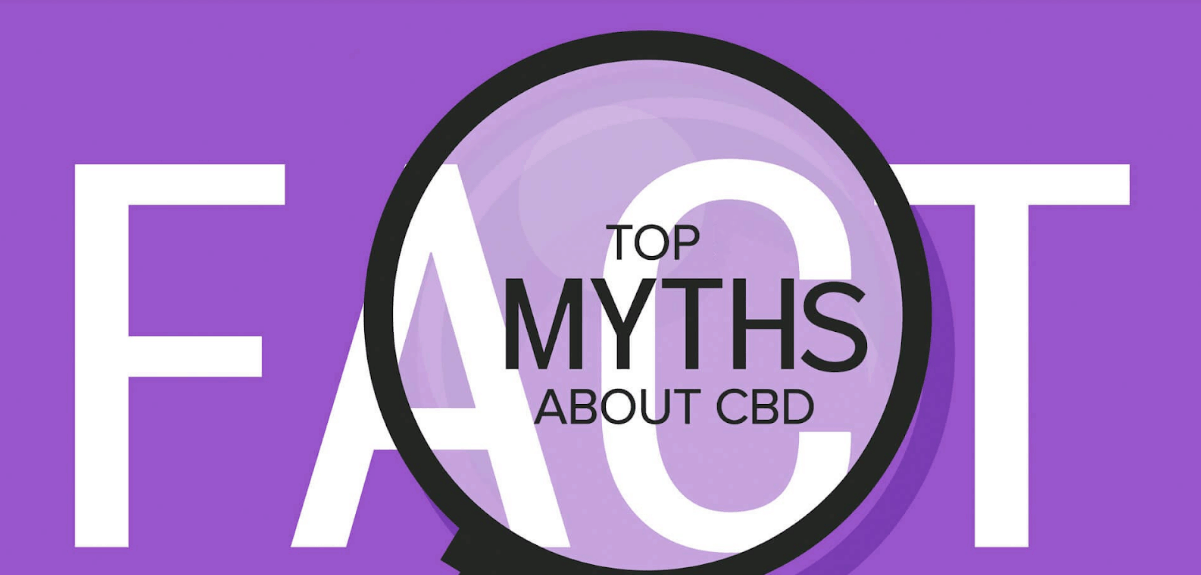
With all the buzz surrounding the topic of CBD, it’s often difficult to discern real, valuable, and confirmed information from fake news.
All this information can sometimes discourage new users from trusting the product and even spread half-truths or misinformation. To reassure you, there are companies out there dedicated to being a valuable resource for newcomers and professionals alike.
Because of its closeness with THC, there’s a lot of uncertainties surrounding CBD. Unfortunately, trying to educate yourself on the subject can have the opposite effect and leave you totally dazed and reading a lot more conflicting information.
Catchphrases like ‘CBD treats this,’ ‘CBD treats that,’ have become all too common. To help clear things up, we are addressing some of the most common myths about CBD hemp oils. Let’s take a look at five myths people often believe.
Myth 1: CBD Treats All
If you are new to the CBD world, it’s important to watch out for claims. For example, one website can claim that CBD is the ultimate cure for insomnia, while another says that it’s an all-natural stimulant that can keep you up at night. What you probably didn’t know is that these effects depend heavily on each unique individual. People turn to CBD for a myriad of reasons.
One article will tell you that topical CBD can be absorbed through the skin when suffering from bruises or aches, and the next will tell you that can’t possibly be true. These diverse chunks of information are hard to put together into one cohesive understanding, so it’s easy to get discouraged and move on before the truth about the therapeutic benefits of CBD are revealed to you.
Myth 2: CBD is the same as THC
For those who can’t tell the difference, we’re here to clarify. CBD is not the same as THC. Although they have the same chemical makeup, what differentiates the two compounds is the arrangement of a single atom. As we all know, an atom is smaller than anything you can imagine. Now you’re probably asking yourself, with such a microscopic difference, how different can CBD be any different than THC?
The short answer — very different . Let’s break it down. Because THC and CBD have different molecular structures, they do not interact with the receptors in our bodies in the same way. This difference in arrangement greatly differentiates the effects each has on the body. People sometimes fail to recognize the unique benefits of CBD when we assume it’s just THC without the high.
Myth 3: CBD Is The Future of Medicine
This one is particularly tricky. Modern medicine has come a long way. For a drug to be approved and distributed to the general public, a lot of regulations and policies have to be complied with. CBD is relatively new and still needs time to become as mainstream as an FDA-approved drug.
Let’s start with the fact that research on the potential benefits of CBD is being published every week. Although the results are promising, it is nowhere near to being recognized as medicine, let alone the future of medicine. Right now, CBD acts more as a supplement that can be incorporated into one’s life for wellness purposes.
Myth 4: All CBD is the same
Not all CBD is created equal. If you are on the market for CBD products, you have three options: full spectrum CBD, broad spectrum, or isolate. Let’s go over the key differences.
Full spectrum CBD contains every cannabinoid present in the cannabis plant. This means cannabidiol, cannabicyclol, tetrahydrocannabivarin, and cannbichromevinaric acid aren’t removed. In full spectrum CBD oil, nothing is left out. These mixed together compliment each other to produce an effect called the ‘entourage effect’. In Isolate form, every element is removed from the CBD. Last but not least, there is the best of both worlds, broad spectrum, this one is a mixture of both.
Like Full Spectrum CBD, the compounds found within the plant are preserved, however, like CBD Isolate, THC is kept to a minimum to comply with regulations. Because Broad Spectrum CBD contains multiple cannabinoids, it has the ability to deliver the enhanced benefits of the “entourage effect.”
Myth 5: CBD Oil Is Addictive
The short answer is no! Like we mentioned earlier, CBD interacts very differently with the body. CBD acts more like a supplement rather than a drug. To give you an example, If you rely on melatonin to help you fall asleep at night, it’s not really an addiction or a use disorder. In other words, you’ll turn to it again because the results are notable.
Webminati Media is committed to delivering the most reliable and unbiased product reviews possible. Their team of experts works tirelessly to research, test, and evaluate products across various categories, enabling consumers to make informed purchasing decisions confidently. They take great pride in their hands-on testing, thorough research process, and analysis of customer feedback, all aimed at ensuring the reliability and informativeness of their reviews. Webminati Media is also committed to continuously updating its reviews in response to product availability or new information changes, providing consumers with the most up-to-date recommendations.
It's important to note that the guidelines and advice offered in these reviews should not serve as substitutes for medical advice. Webminati Media advises consumers to consult their physician before taking any medication or if they have any doubts about a product, prioritizing their health and safety above all else.








5 thoughts on “5 Most Common Myths About CBD Oil”
Comments are closed.